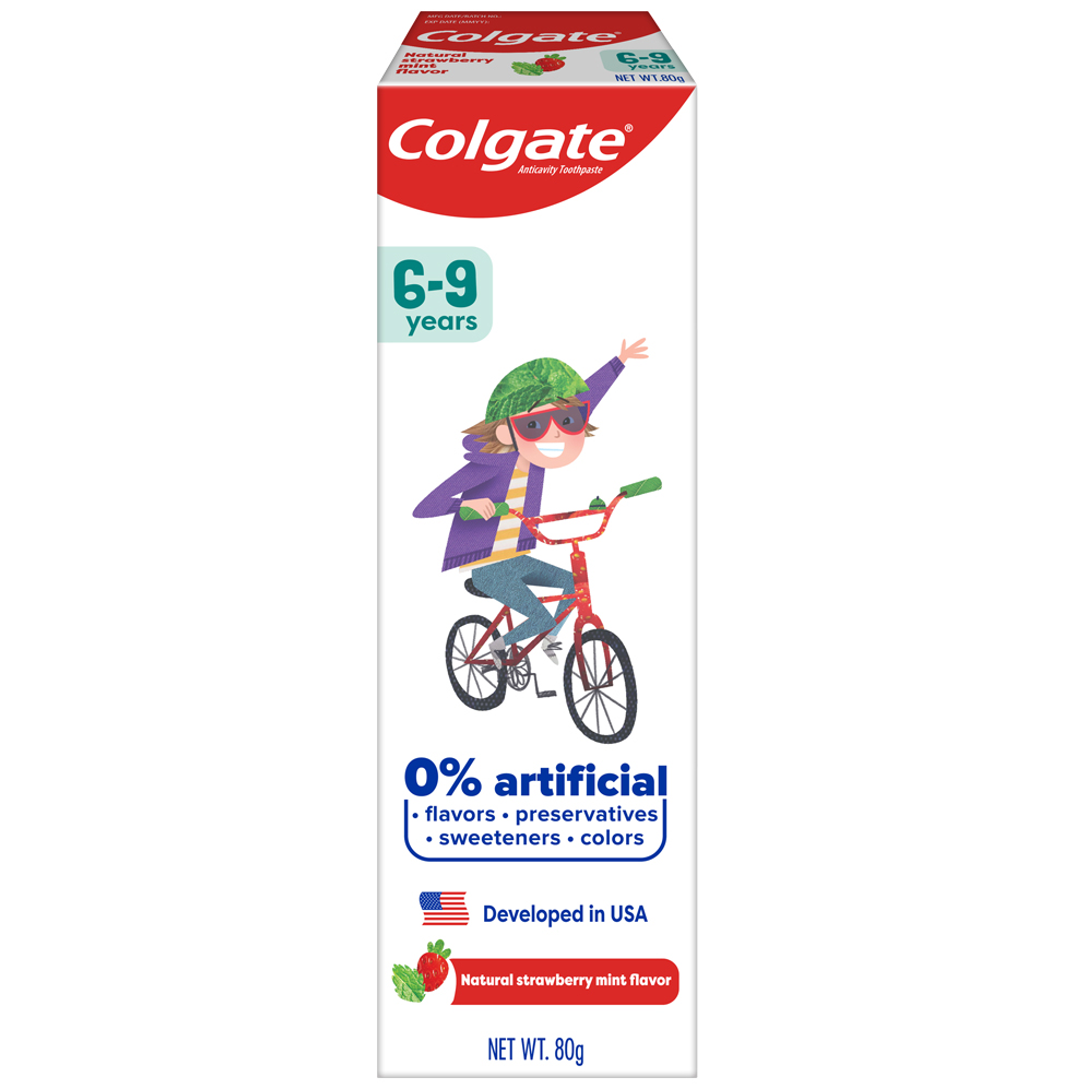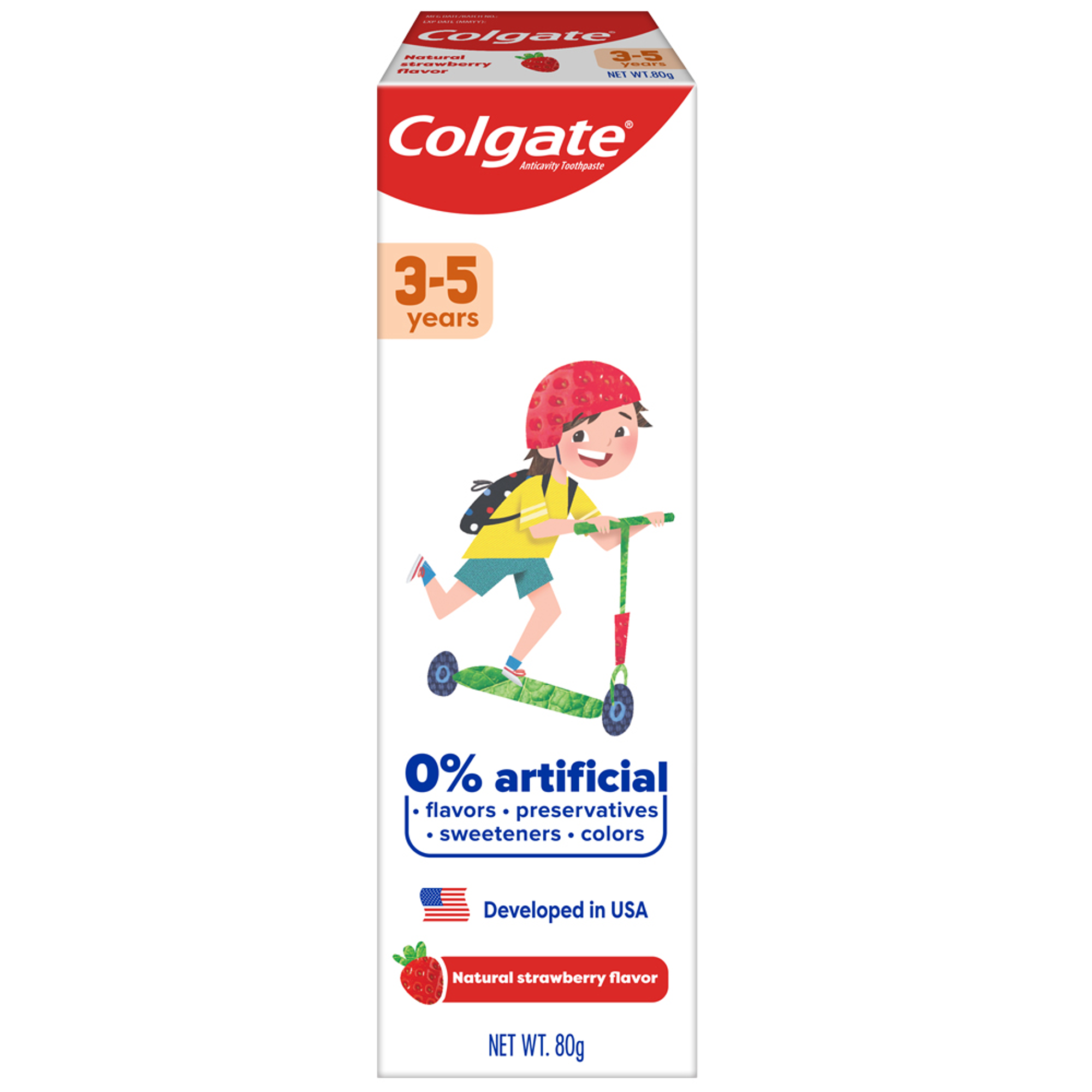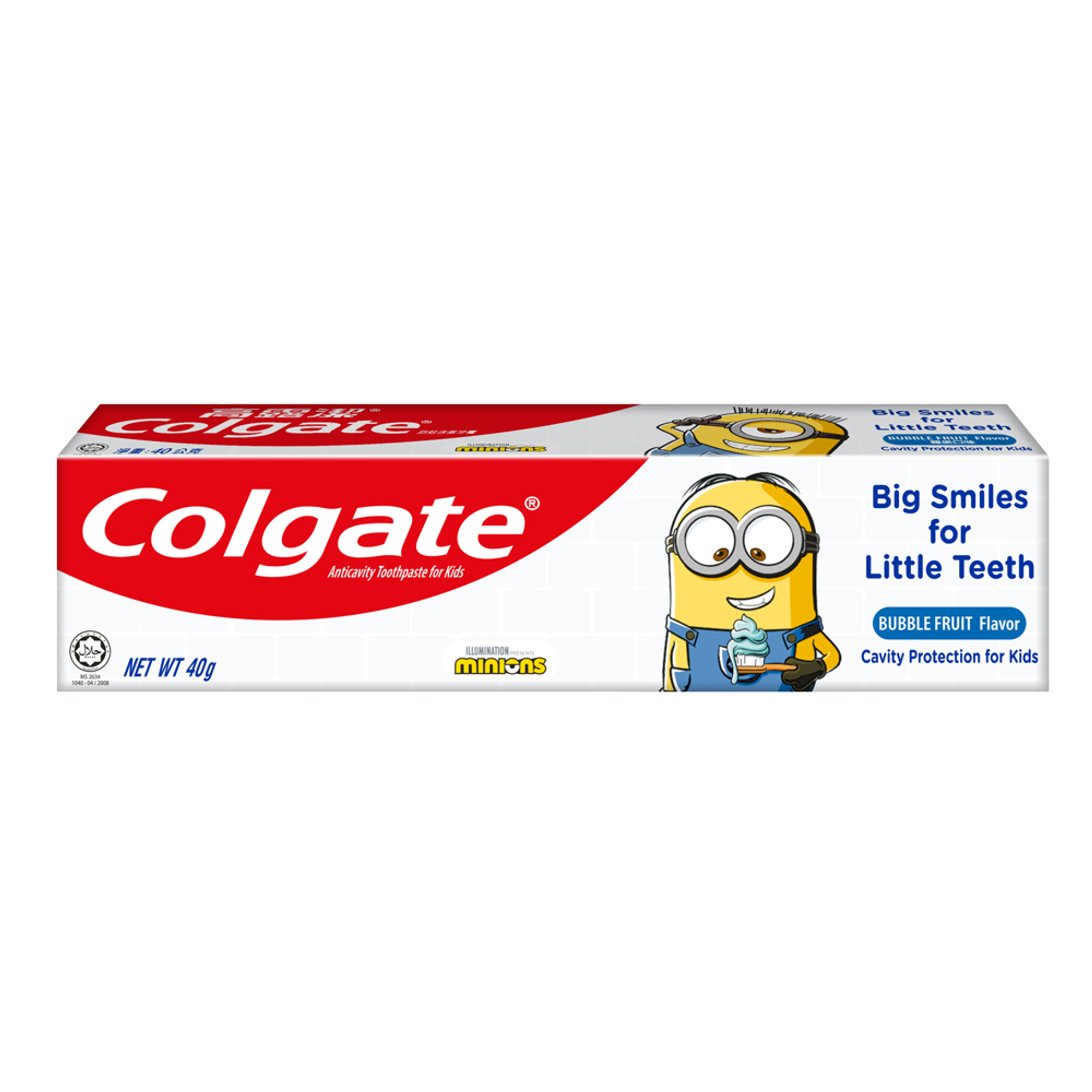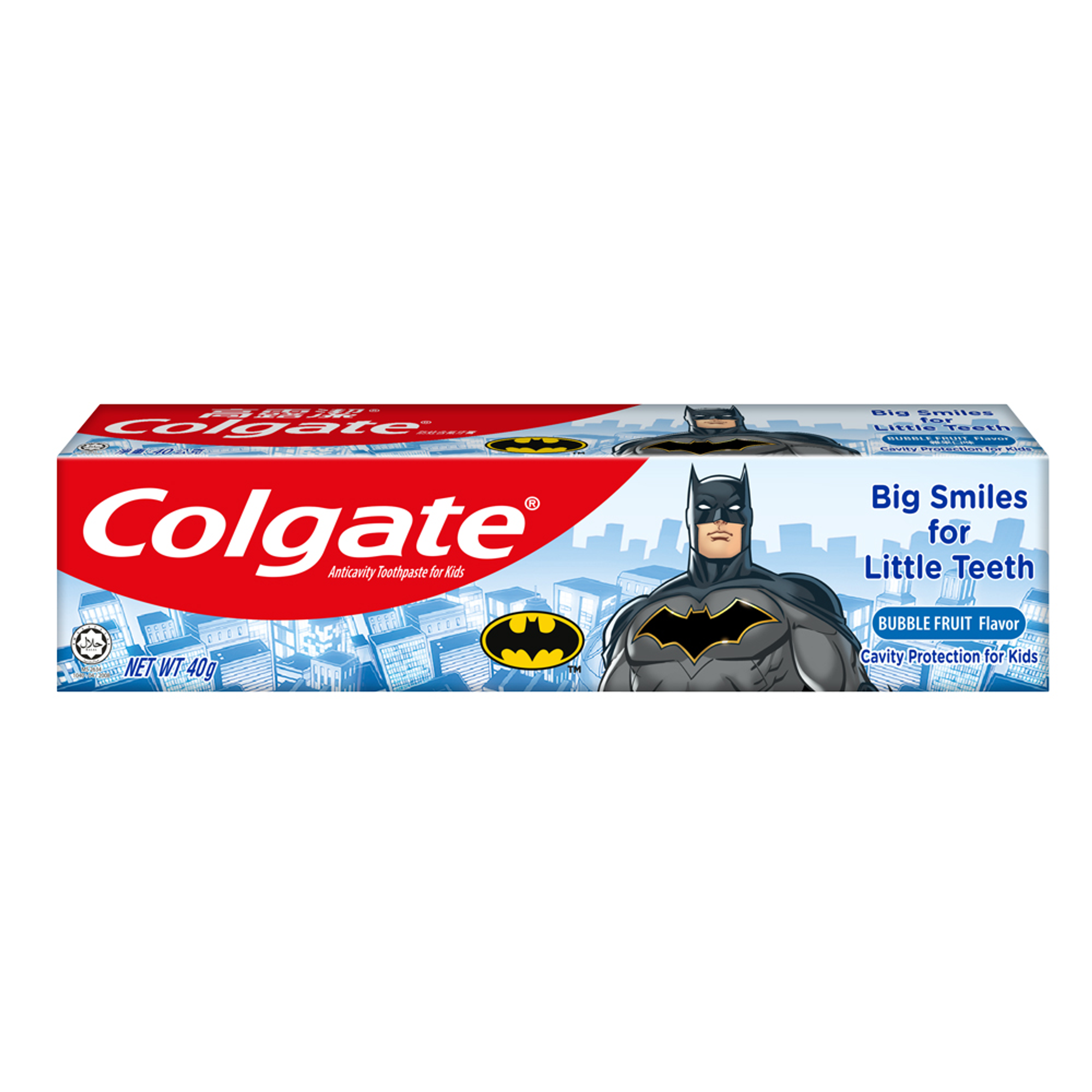-
-

FLUORIDE
Discover how stannous fluoride toothpaste prevents cavities and other oral health issues. Learn the key benefits of fluoride for teeth and its best uses.Fluoride plays a vital role in oral healthcare...

TEETH WHITENING
Teeth Whitening Serum for a Brighter, Confident SmileWho does not want whiter and brighter teeth? Thanks to the many teeth-whitening products available today...
-
Science & Innovation
- ORAL HEALTH ASSESSMENT
- Colgate® | Toothpaste, Toothbrushes & Oral Care Resources
- Oral Health
- Brushing Baby's Teeth: How To Get Started
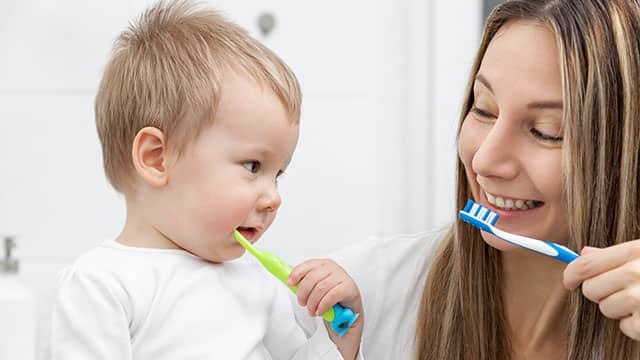

You're a parent now.
Congrats on that.
With that comes the responsibility of caring for this little bundle of joy. Which means feeding, burping, changing, sleeping... and then repeating that all over again. Somewhere amid that simple yet chaotic formula, your child will begin to teethe. And as soon as they do, those little chicklets need tending to. Those are their baby teeth. The sooner you start caring for your baby's teeth, the better the chance of thwarting the appearance of tooth decay. And that makes for a healthy baby and happy parents.
Why Baby Teeth are Important
You may not realise it, but the importance of baby teeth can't be understated. Baby teeth help your child with:
- Speaking
- Smiling
- Chewing
- Space holding
Let's dive deeper into that last one. This means their baby teeth are reserving a space in the jaws for their permanent adult teeth to come in eventually. However, suppose a baby tooth is lost prematurely. In that case, the adult tooth might drift where it shouldn't, leading to overcrowding and a crooked smile. The baby tooth could have been lost to decay and cavities. At a young age, this can be quite painful for your little one. No parent wants any of this. This makes it all the more important to perform good oral care from the time they're infants. Plus, daily brushing and watching their sugar intake will help. It's never too early to be healthy.
When Does Teething Begin
Teething is one of the first recognisable signs of growth with your baby. You'll most likely experience the baby's irritability from the discomfort of teething well before you actually see any teeth pop out. The Ministry of Health says most babies will have their first tooth erupting at about six months of age, but it is also possible for this to happen as early as three months and as late as a year. But by the time their third birthday rolls around, they should have a full smile of all 20 baby teeth. A baby teething chart can also help make sure all of their teeth come in as they should. Typical teething symptoms include:
- Frequent drooling
- Fussiness
- Irritability
- Loss of appetite
- Trouble sleeping
Some common sense and these tips will help get everyone through the teething stage. However, a fever, diarrhoea or rash are not common symptoms. You should speak to your paediatrician if your tot is experiencing any of these.
Brushing Baby's Teeth:
Their baby teeth are a huge factor in their oral health. But before they cut their first tooth, parents should also be getting their baby used to their gums being cleaned, as suggested by this The Straits Times article, by cleaning their gums with a clean gauze pad or moist and soft cloth. Concerning how you should brush their teeth once their teeth erupt, you should:
- Use a soft-bristled baby toothbrush with fluoride toothpaste after eating and before bed, and remember to clean between their teeth where two teeth touch
- Brush with fluoride toothpaste in an amount no more than the size of a grain of rice for children younger than three years old
- Brush with fluoride toothpaste in an amount no more than the size of a pea for children three to six years old
- Brush (back and forth and in circles) both morning and night (for two minutes) and try to make it as fun as possible so your child grows up enjoying brushing
It's time to take them on their first trip to the dentist when they turn one or when their first tooth pops out. There, the dentist will let you know that good oral care will keep your baby happy and your baby's baby teeth healthy. That means proper brushing with fluoride, cleaning between teeth, regular dental check-ups and a healthy diet are your baby's best friend - that and a teething ring. You'll see.
Related Articles
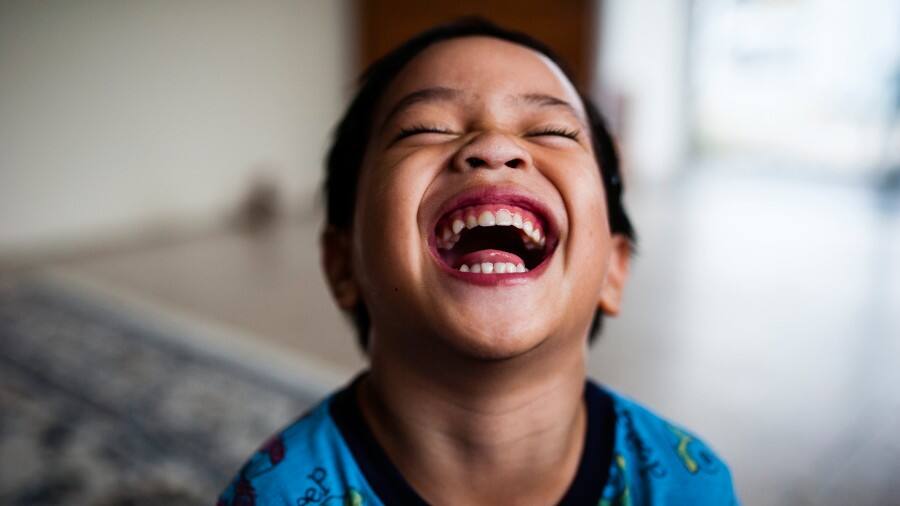
Do you remember losing your first tooth? Consider using a tooth fairy pillow for your child to place their lost teeth in. Learn more here.


Related Products

Helping dental professionals
More professionals across the world trust Colgate. Find resources, products, and information to give your patients a healthier future




